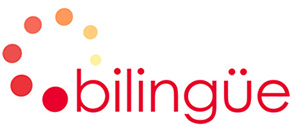Every translation requires a tailor-made approach. Translation agency Bilingüe would be pleased to provide you with general and certified translations for the language pairs Spanish > Dutch and Dutch > Spanish. She can also provide translations for the language pair English > Spanish.
Drs. Bibi van den Bos is a specialist in translating legal documents such as:
- Contracts of sales
- Notarial deeds and documents
- Court decisions
- Powers of attorney
- Legal assistance requests under international treaties
- Criminal files
- Extracts from Chambers of Commerce
Of course you can also contact Bilingüe for certified translations of:
- Birth certificates
- Marriage certificates
- Statements of unmarried status
- Divorce papers
- Adoption papers
- Death certificates
- Diplomas and CVs
Bilingüe is also the right address if the translation of your document requires an apostille or legalisation.
Bilingüe works in close cooperation with various freelancers. It can therefore ensure that every translation is checked by an expert in the relevant discipline, for example for translations of medical files.
What is a certified translation?
If you have official documents which need to be translated for use by a public authority or official institution, it is very likely the translations will need to be certified.
Examples of such documents are:
- Legal documents required for legal proceedings
- Documents for filing with the Registry of Births, Deaths, Marriages and Registered Partnerships
- Emigration documents
- Diplomas and certificates for studies or work abroad
- Financial audit statements
- Notarial deeds
A certified translation is a formal document drawn up by a sworn translator. It not only comprises the source document and the translation, but also a signed and stamped statement from the translator that the translation is a true and faithful translation of the source document. These three documents are then attached to one another.
Certified translations can only be made by sworn translators. These translators have been sworn in by the District Court, are listed in the Netherlands Register of Sworn Interpreters and Translators, and have filed their signatures with the Registry of the District Court. Drs. Bibi van den Bos has filed her signature with the Registry of the District Court of Amsterdam.
Legal validity of Dutch documents abroad
A Dutch public document is not valid outside the Netherlands until a legalisation or an apostille has been placed on this document. In both cases, this is a confirmation that the signature of the sworn translator is registered with the relevant District Court. A legalisation or apostille can only be placed by the District Court where the signature of the sworn translator has been filed. It is in fact a sticker with details filled in by the court registry, which is then signed and stamped by the court registrar.
Legalisation or apostille?
On 5 October 1961, the Apostille Convention was ratified by many countries worldwide. These signatory countries accept translations certified for legal purposes in another signatory country, which is done by placing an apostille on the translation.
Translations required in countries outside the Netherlands which have not ratified the Apostille Convention, however, have to take a different route. In that case, the Netherlands District Court has to legalise the translation, which then needs to be confirmed by the Consular Service Centre of the Ministry of Foreign Affairs, and finally by the embassy or consulate of the country to which the translation needs to be sent. Only then does the translation have legal validity in the country where it is required. As most of the above-mentioned organisations are located in The Hague, the legalisation route is often referred to as the ‘round of The Hague’.
The Apostille Convention provides an official ‘short-cut’ to this procedure and an apostille is consequently sufficient proof of legal validity.
For more information and a list of the countries which have ratified the Apostille Convention, please check the site of the Dutch government at Apostille Convention.
Legal validity of foreign documents in the Netherlands
Let us take the example of someone who was born in Columbia or Spain and now needs to register at the city hall or the Immigration and Naturalisation Service in the Netherlands. In that case, an original of the person’s birth certificate has to be certified by a signature of the civil servant who issued the document. It is then sufficient to have the document translated into Dutch and certified by a sworn translator. No Dutch apostille is required.
